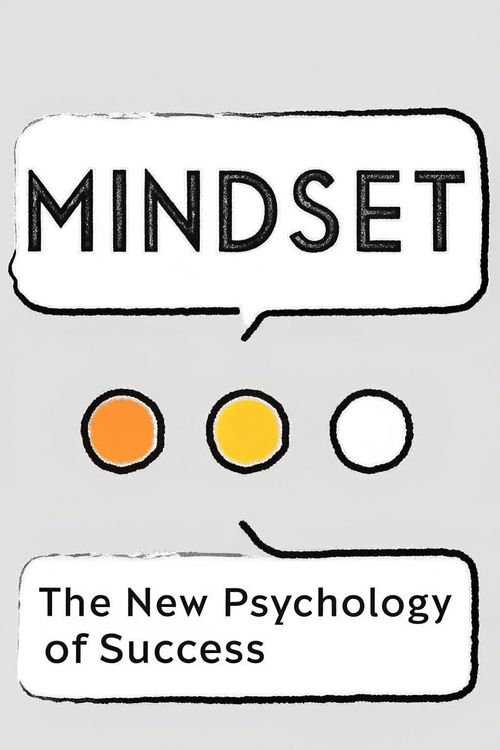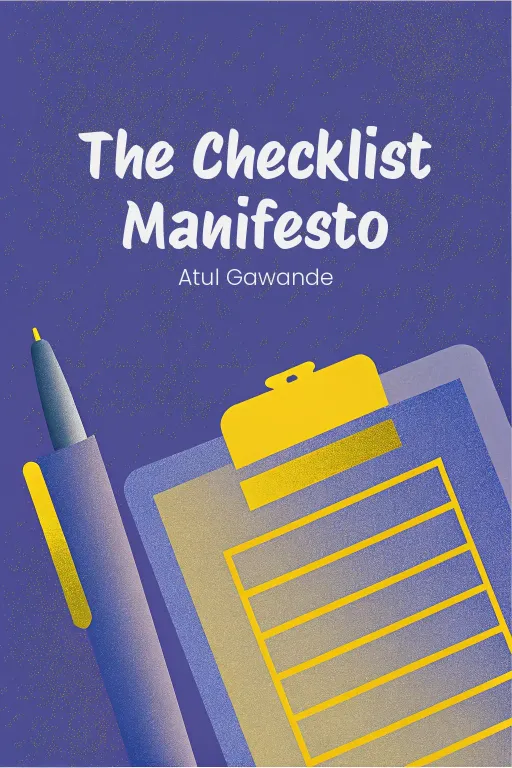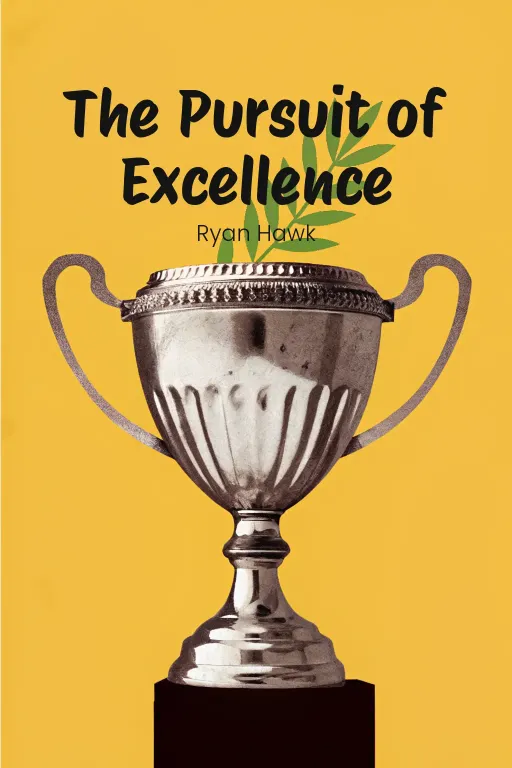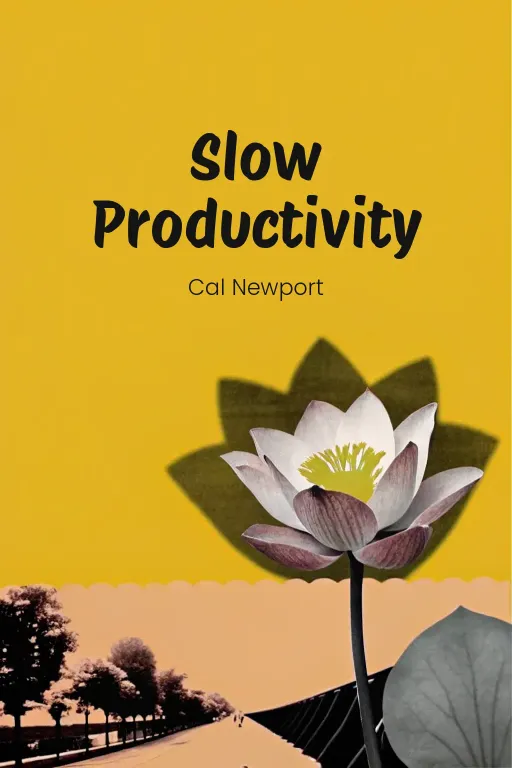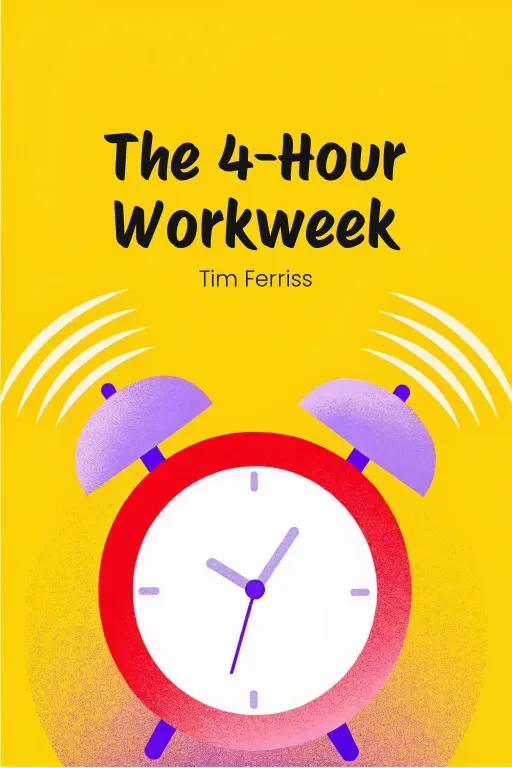
Master Your Mornings, Master Your Life
Podcast by Beta You with Alex and Michelle
Own Your Morning. Elevate Your Life.
Introduction
Part 1
Alex: Alright everyone, welcome back! Ever wonder if there's a simple trick to totally transform your life? What if it all came down to just owning that first hour of your day? Imagine waking up, not just early, but with real clarity, a sense of purpose, and a solid plan for hitting your goals. Michelle: Hold on, Alex. Waking up earlier? Seriously? I think you just lost half our audience right there! 5 AM? That sounds like the end of the day for some people, not the beginning. Alex: Okay, fair enough, Michelle. But hear me out – I think today’s topic might actually change some minds. We're diving into The 5 AM Club by Robin Sharma. The book frames your mornings as this incredible opportunity to unlock your highest potential. It’s a story that really dives into why nailing that one hour can boost your focus, energy, and really fulfill you personally. It's not just about the alarm clock; it’s this whole philosophy! Michelle: Okay, so if I'm hearing you right, you're saying waking up super early will magically make us healthier, richer, and, what, give us a PhD? Color me skeptical, but alright, I'm intrigued. What exactly are we unpacking here? Alex: Good question! We're focusing on three pretty powerful ideas. First, the 20/20/20 Formula. This is a science-backed routine designed to kickstart your day. Think of it as your personalized, morning blueprint for success, broken down into three segments. Michelle: “Intense” is the word that comes to mind. Please, tell me coffee is at least implied in this blueprint? Alex: We'll get to the caffeine situation, don't worry! Next, we'll get into the Four Interior Empires. These are mindset, heartset, healthset, and soulset. They are the four pillars for a really balanced life. Think of them like the roots of a tree, keeping everything grounded, you know? Michelle: I like that analogy. But what happens when the tree – or a person, for that matter – just… falls over? What if we can’t stick to these habits? Alex: That's where the last piece, the 66-Day Rule, comes in. We'll talk about how repetition and consistent focus is like tending a garden and cultivating real change. Michelle: Okay, so blueprints, roots, gardens... Sounds like a whole success ecosystem going on here. Let's find out if this actually works in the real world, shall we?
The 20/20/20 Formula
Part 2
Alex: Exactly, Michelle. Since the 20/20/20 Formula is really the core of this framework, let's break it down a bit. Think of your morning divided into three 20-minute blocks. First, Move; then Reflect; and finally, Grow. These aren’t just random time slots—they’re designed to energize your body, center your mind, and boost your intellect. Let's start with the basic idea of a daily routine here. Michelle: Okay, 20 minutes for Move first thing. Are you saying I need to do actual physical activity before my brain even knows I'm awake? Alex: That's the idea! It's not about forcing yourself into some crazy workout; it's about getting your body going. You want to do something that gets you moving. This helps release endorphins and lower cortisol—that stress hormone we all know and love. That “boost” we feel after exercise? That's dopamine kicking in, which gives you mental clarity and a sense of motivation to start the day. There's science to back this up. Remember that 2018 study in the American Journal of Physiology that I found so interesting? It shows that just 20 minutes of morning exercise can boost your productivity throughout the day. Michelle: “Fascinating” might be a stretch for some people. You're basically asking people to start sweating at, like, 5 AM. Do you think that's realistic for everyone? What about those of us who aren't exactly "power through a spin class before coffee" types? Alex: Yeah, that's fair. You don't have to jump straight into an intense workout. The goal is to find something that fits your lifestyle—a brisk walk, some stretching, even yoga. In The 5 AM Club, the billionaire mentor talks about starting small and gradually increasing the intensity. It’s not so much what you do as the impact it has on your body. Movement wakes you up, prepares your mind, and really anchors your morning. Michelle: I get it. But what if someone does their best thinking at night? Couldn't they just shift this whole "exercise first" thing to later in the day? I mean, science says exercise is good anytime, right? Alex: True, but doing it in the morning does have a certain advantage. When you start the day with movement, you are setting yourself up to function better right from the start. It sets the tone for the whole day, really. The billionaire mentor calls it a "biological reboot." Think of it as flipping an energy switch—starting with action and intention. Michelle: Hmm, hard to argue with starting strong, though I might need to tweak it for my rhythm. Okay, after surviving the first 20 minutes of sweat and cortisol reduction, what comes next? Alex: Next up is step two: Reflect. These 20 minutes are for quieting the noise, grounding yourself emotionally, and processing your thoughts. Think journaling, meditation, or just practicing mindfulness. Michelle: Journaling? Sounds kinda...intense. Wouldn't most people just stare at a blank page for 20 minutes? What are they even supposed to write about? Alex: Good point. It's not about writing something groundbreaking every morning. The writing itself is really a way to detox emotionally—to declutter your mind. The billionaire mentor says to think of journaling as an "emotional audit." You write down your worries, reflect on what you’re grateful for, and clarify your goals for the day. People like Leonardo da Vinci and Walt Disney used journaling to spark creativity and solve problems. It's about getting clarity so you can handle the complexities of life with a fresh perspective. Michelle: So it's like dumping all the junk off your mental desktop onto paper. Clever. But for us non-writers, meditation might be a better fit during this Reflect period, right? Alex: Absolutely. Meditation can work wonders. Research from Harvard Medical School shows that mindfulness meditation isn't just good for stress; it can improve decision-making and boost emotional regulation. Just a few minutes of centering yourself in the morning builds resilience. It’s like installing an antivirus program for your mind—keeping external chaos from completely derailing you. Michelle: An antivirus for the mind—I like that. But how do you keep journaling or meditation from getting repetitive? Worry, gratitude, intentions—doesn’t that get old fast? Alex: Only if you don't get creative with it. Change your focus. Some mornings, explore your long-term dreams. Other days, analyze challenges or think back on moments of joy. It's about building mindfulness and emotional grounding, not just running through a checklist. Remember, it's all about reflection; it's about gaining the mental and emotional clarity to stay focused throughout the day. Michelle: Okay, fair point. Go inward before the outward chaos hits. So, after Move and Reflect, there’s one more: Grow. What's that about? Alex: This is where you focus on expanding your mind. You dedicate 20 minutes to learning something new—reading an insightful book, listening to a thought-provoking podcast, or diving into professional resources. What's key is that it's not just about what you learn, but doing it consistently, every single day. A little bit of knowledge adds up over time. Michelle: So, basically, the opposite of doom-scrolling through social media before breakfast. Alex: Exactly! Imagine replacing those distractions with content that enriches you and builds you up. The billionaire mentor talks about how many successful leaders attribute their pre-dawn learning habits to their decision-making and innovation. CEOs, top athletes, thought leaders – this routine ensures they are starting their day with wisdom, creativity, and a strategic mindset. Michelle: I like the idea of cumulative growth—investing 20 minutes each day does sound doable, at least in theory. But could it also apply to creative stuff? Like writing music, sketching, or drafting a proposal? Wouldn't that also count as "growth?" Alex: Totally! It’s about what helps you grow personally or professionally. Reading, creating, solving problems, it all counts. The point is to make it a habit: dedicate that part of your morning to nurturing your intellectual or creative development. When you put all three pieces together—Move, Reflect, and Grow—you're not just starting the day; you're designing it. Michelle: It's got layers, this thing. Move energizes you, Reflect clears your head, and Grow fuels your knowledge. I'll give you that, Alex; it’s a well-crafted routine. But can people really stick to such a structured morning every single day? Alex: It does take some getting used to. That's why the billionaire mentor advises easing into it and focusing on consistency, not perfection. The key is to make these habits automatic, like planting seeds. Each day’s discipline creates a ripple effect, and over time, it transforms how you think about time, energy, and focus. Part of the beauty of this is the intentionality—you're no longer rushing through your mornings just to keep up. You're actually owning them.
Four Interior Empires
Part 3
Alex: So, owning your morning with Move, Reflect, and Grow naturally sets us up for the next layer of The 5 AM Club: the Four Interior Empires. Now, this is where the philosophy really deepens, Michelle. If the 20/20/20 Formula designs your morning, the Four Interior Empires design you—from the inside out. Michelle: Four empires, huh? Okay, I’m intrigued. Are we talking historical kingdoms or something more... personal? Alex: Definitely more personal. The Four Interior Empires are Mindset, Heartset, Healthset, and Soulset. Think of them as the cornerstones of your existence—your thoughts, emotions, physical health, and your sense of purpose. Each is distinct, but they're all interconnected. If you neglect even one, you'll feel the impact on your overall balance and how effective you are. Michelle: Okay, I get it. It's not about conquering external territories, but fortifying your inner self. How do we approach this? Do we work on each empire separately, or are we aiming to integrate them into our daily lives? Alex: It's a progression. First, you cultivate each of these interior aspects individually, building a solid internal base. Then, you integrate them into your daily habits, routines, and decisions. The ultimate goal is broader impact – radiating that personal growth outward, influencing others, and living a life driven by purpose. Michelle: Logical. Alright, let's begin with Mindset. If there's one thing I know about self-help frameworks, they usually kick off with the brain. Alex: Exactly! Mindset is the cornerstone. It's how we understand the world, how we frame our challenges, and fuel our ambitions. The billionaire mentor calls it cultivating a "craftsman's mindset." You don't just approach tasks; you elevate them with intention, focus, and resilience. Michelle: I like that. Each task becomes a brushstroke on the canvas of your life. So, is this about being positive, being productive, or a blend of both? Alex: It's both, definitely but more about developing a growth-oriented mental approach that applies across the board. The book draws a cool parallel to the Taj Mahal – a lasting symbol of vision and dedication. It took over 20 years and thousands of skilled workers to build that masterpiece, Michelle. That same principle applies to our goals. They require consistent mental resilience and the ability to hold onto that long-term vision, even when things get tough in the short term. Michelle: Good metaphor. But, I wonder—how do everyday folks, juggling hectic lives, manage to find this kind of focus? It's not like we're all building Taj Mahals on the weekends. Alex: True, but it's not about the scale of the project. It's about the intention behind it. A consistent Mindset practice helps you stay true to your vision, whether you're building a career, a family, or a healthier state of mind. The billionaire mentor emphasizes using tools like journaling as a key! By documenting your challenges, insights, and dreams, you clarify your intentions and actively train your mind to embrace growth and resilience. Michelle: Journaling again, huh? Okay. Is there actually solid research to support this kind of mental retraining? Alex: Absolutely! Harvard research shows that people with a growth mindset—those who believe they can improve their abilities and intelligence—are more likely to succeed and bounce back from failures. It's not a quick fix, but a muscle you build with consistent effort. Michelle: Alright, I buy it. So, mental game down. What's next? Heartset, I presume? Alex: You got it. If Mindset is about mental clarity, Heartset is about emotional well-being. It's about how you process emotions, how you nurture empathy, and how you cultivate joy. As the book points out, if we're emotionally off-track or carrying unresolved baggage, no amount of mental toughness will get us where we want to be. Michelle: Emotion can be tricky to address, though, right? There's still that pressure to "tough it out" instead of actually dealing with our feelings. What does The 5 AM Club suggest for breaking that pattern? Alex: That's where Heartset really shines. The billionaire mentor uses Nelson Mandela’s story to illustrate this. Imagine being imprisoned for 27 years, and coming out with the emotional strength to forgive your captors. Mandela turned emotional processing into a transformative force. Instead of letting bitterness consume him, he cultivated forgiveness, turning his personal pain into national healing. Michelle: Mandela's example is powerful, but exceptional. For those of us facing less... dramatic challenges, what does working on your Heartset actually look like? Alex: Gratitude journaling is key—it shifts your focus from what's stressing you out to what you're thankful for. Pair that with meditation, which helps you regulate your emotions and become more self-aware. These practices create space for positivity and calm, turning emotional turmoil into chances for growth. Studies from UC Berkeley support this, showing that leaders who practice empathy and compassion are not only more effective but also report greater personal fulfillment. Michelle: In a world often leaning toward cynicism and stress, leading with heart could be a real game-changer. Speaking of change, let's talk about the physical side of things—Healthset. Where does that fit in? Alex: Healthset emphasizes how essential physical health is to your overall performance. After all, your body is your vehicle for experiencing life! Through the billionaire’s eyes, achieving mastery—even mentally and emotionally—requires a healthy, energized body. Michelle: Okay, so it's like a gym membership for the spirit. What kind of physical practices are we talking about? Do we need to run a marathon every week? Alex: Not at all! It can be as simple as starting the day with 20 minutes of movement. The key is consistency. High-intensity exercise in the morning releases endorphins and gets your brain ready to focus at its best all day long. It’s a biochemical advantage—not just for fitness but for productivity. Michelle: I think I know the answer, but does science support this? Alex: It does! A 2018 study in the Journal of Sports Sciences showed that morning exercise enhances mental alertness and reduces stress. And beyond exercise, Healthset includes hydration, sleep, and balanced nutrition—all crucial for unlocking creativity and optimizing energy. Michelle: Okay, that’s reasonable. Okay, we’re three empires in, one to go. Soulset, right? Let’s finish with the most profound one. Alex: Soulset it is! And it's all about connecting with your deeper purpose – living authentically and in line with your values. While Mindset, Heartset, and Healthset are about living well in the present, Soulset adds that element of transcendence. Michelle: So, you're zooming out, contemplating life's “big why.” But how do we find that “why?” It's not like we all have a direct line to our deeper purpose. Alex: You cultivate it. You use practices like meditation, reflection, or even nature walks to tune in. These moments clear the mental clutter, allowing you to focus on the bigger questions. The entrepreneur's story in the book “really” drives this point home—despite having it all materially, she felt empty until she realigned with her purpose of leading meaningfully. That shift transformed her life. Michelle: And I suppose Soulset challenges our modern obsession with material success? Alex: Absolutely. The billionaire mentor makes it clear that fulfillment comes not from accumulation, but from contribution and connection. By integrating Soulset into your growth, you make your success not just personal but also meaningful for others. Michelle: So, Alex, to recap—the Four Interior Empires are, in essence, a blueprint for balancing the mind, emotions, body, and spirit. Strengthen these foundations, and you're operating from a place of alignment and clarity, rather than survival mode. Alex: Precisely! And the beautiful thing is how they intertwine. When you address one, it naturally elevates the others. The Four Empires remind us that greatness isn’t compartmentalized—it’s holistic.
Habit Formation and the 66-Day Rule
Part 4
Alex: So, we've talked about morning routines and inner balance. Now let's dive into how we actually make these things stick. That brings us to the Habit Formation framework from The 5 AM Club, which revolves around the intriguing 66-Day Rule. Michelle: Sixty-six days, huh? Habits: those things we swear we'll master every January. But why this specific number? It's not a typical 30-day challenge or some life-hack-y 21 days. Alex: Well, it’s based on research. A study from University College London found that, on average, it takes about 66 days for a new behavior to become a regular habit, almost automatic. This period isn't just a random number, it’s actually broken down into three phases: Destruction, Installation, and Integration. Michelle: Okay, three phases. Sounds like a construction project for our minds. Let’s start with the first phase – Destruction. What's that all about? Alex: Destruction is, well, exactly what it sounds like: tearing down the old to make way for the new. It's about letting go of old habits to create space for the habits you actually want. Think of it as the demolition crew coming in to knock down those routines that are holding you back. Michelle: Chaos and mess, got it. Does the book have a metaphor to make this sound, I don’t know, less painful? Alex: Absolutely. The billionaire mentor compares it to building the Taj Mahal. Before that masterpiece could be built, they had to clear the land. The Destruction phase is like that, requiring energy to push past the discomfort of breaking old patterns. Michelle: Okay, the metaphor works. But the discomfort is the real kicker, right? People “really” resist change. It’s like our bodies are programmed to conserve energy and stick to what’s familiar. Alex: Exactly. That's your brain trying to cling to what it already knows, avoiding anything that requires extra effort. But here’s the thing: that discomfort is actually a good sign. Change requires friction. Michelle: Alright, let's say someone accepts this friction. What tools does the book offer to navigate this demolition zone? Alex: Preparation is key. The billionaire mentor suggests using affirmations and visualizations, focusing on the long-term results. Visualize your Taj Mahal, your end goal, and use that as motivation. It's also about mental toughness, reminding yourself that tough beginnings lead to transformation. Michelle: Grit through the destruction. Got it. Then comes Installation. We're building now, right? What's that process like? Alex: Installation is where things get messy and frustrating, like rewiring a house during renovations. It's disorienting, but you're laying the groundwork for something new. Michelle: Messy and frustrating. Sounds familiar. What’s happening biologically at this stage? Alex: Neuroplasticity. Your brain is adapting and reorganizing itself. Each time you repeat the new behavior, you’re creating new neural pathways. But you have to be consistent. This isn’t a quick fix. Most people want to quit during this phase because they don’t see results immediately. Michelle: Ah, the dreaded plateau. How do you get through it? Alex: Bite-sized wins. Instead of trying to overhaul your entire routine, focus on micro-habits. Wake up 15 minutes earlier instead of jumping straight to 5 AM. Meditate for five minutes instead of 20. Track your progress – seeing small improvements builds momentum. Michelle: And I’m guessing the billionaire mentor has some words of encouragement for those "I'm done" moments? Alex: Definitely. He emphasizes embracing the chaos. The entrepreneur and artist struggle, but he reminds them that messiness is necessary for clarity. It’s about trusting that the disorder is temporary. Michelle: Okay, fast forward to Integration. Everything's smooth, habits are automatic, right? Alex: Exactly. The hard work pays off. It feels natural, not forced. It becomes muscle memory. Michelle: So, happily ever after? Or are there still challenges? Alex: It's smoother, for sure, but you have to reinforce what you've built. The book compares it to a butterfly emerging from its cocoon, graceful and strong. Acknowledge your growth and celebrate the small victories that solidify the habit. Michelle: Solidifying habits... Where does the 66-day timeline fit? Is it a strict rule or can people adjust it? Alex: It’s more of a guideline. Those 66 days includes all three phases: Days 1 to 22 are the discomfort of Destruction; Days 23 to 44 are the adaptation of Installation; and Days 45 to 66 are the ease of Integration. It gives you a framework, but it also emphasizes patience. Progress might be slow at first, but that's the point. Michelle: Okay, one last question. What if someone messes up? Misses a day or reverts to old habits halfway through. Does it ruin everything? Alex: Not at all. It’s not about perfection, it’s about consistency over time. If you slip, regroup and start again the next day. It's more about developing resilience than rigid discipline. Keep moving forward, even if it’s imperfect. Michelle: Alright, Alex, I’m starting to come around. Destruction sounds tough, Installation messy, but Integration? That’s where the magic happens. And the 66-Day Rule? Practical, science-backed, and realistically long enough to make actual change. So , how would someone apply this to modern urban life? Alex: Exactly, Michelle. What starts as hard work becomes effortless. By going through that process, you’re not just creating habits—you’re improving your life.
Conclusion
Part 5
Alex: So, that pretty much sums up the heart of “The 5 AM Club”. We've dug into the life-changing 20/20/20 Formula, the well-rounded approach of the Four Interior Empires, and the science-backed 66-Day Rule for building habits. Put them all together, and you've got a solid plan for living intentionally, driven by purpose and progress. Michelle: You know, what “really” strikes me, Alex, is how all these ideas tie together. It's more than just getting up early or sticking to some rigid plan. It's about crafting a life that's clear, balanced, and, most importantly, resilient. Whether you're conquering your mornings or working on your habits, these tools push us to rise to the occasion, not just for today, but for the long haul. Alex: Absolutely, Michelle. Like the book emphasizes, greatness isn't just for a select few; it comes from committing to small, but meaningful, habits every single day. So, for our listeners, here's the big takeaway: Own your morning, and you'll elevate your whole life. Start small, be consistent, and remember that every little step you take helps build your own masterpiece. Michelle: Yeah, and look, if 5 AM sounds like a bit much, maybe ease in with 7 AM. The key is to be deliberate, not perfect, right? Real change happens along the way, not necessarily at the crack of dawn. Alex: Exactly! Well said. Until next time, keep moving forward, keep reflecting, and keep growing—no matter if the sun's rising or your coffee's just brewing. Michelle: Here's to designing our days, one morning at a time. Take care, everyone!
